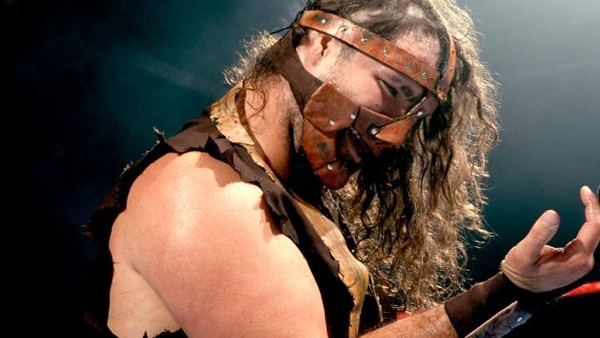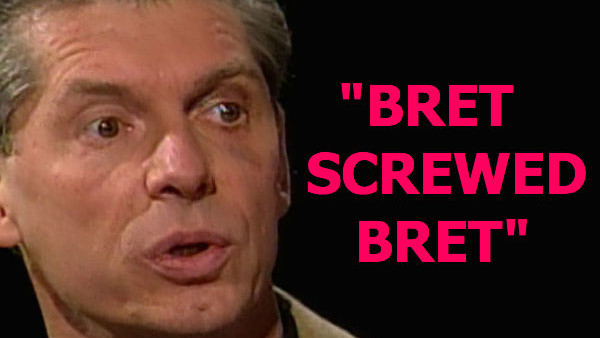10 Origin Stories Of Awesome Wrestlers
"Put on my blue suede shoes and I gave you no chance in hell."

In some cases, wrestling stars are born overnight.
The Kurt Angle character of 1999 was particularly inspired. Cognisant that rampant Attitude Era fans would care little about his genuine Olympic heroics in the different world of 1996, the WWF immediately positioned him as an intentionally anachronistic babyface - a knowing subversion of the Hulk Hogan-style eighties hero. It was an instant critical and commercial smash, a triumph of an insanely fruitful era of star creation.
Elsewhere, it takes time, serendipity, and painstaking effort to elevate a wrestling personality to wrestling stardom.
It also takes bravery. Nowadays, one can fairly accuse WWE of complacency. With no competition forcing their creative hand, and a captive audience largely unwilling to deviate from their routine viewing patterns, the established powerhouse no longer has to try - as long as their shareholders are satisfied with their returns.
Of course, there was a time in which the WWF were struggling, commercially and creatively. Lest they were overtaken (though stories of their would-be demise have been greatly exaggerated), the former Federation once had to operate outside of their comfort zone to plant the seeds for its eventual global dominance...
10. Mr. McMahon

The Mr. McMahon character was forced upon the WWF: after Vince McMahon screwed Bret Hart on his way to WCW at Survivor Series 1997, the Federation owner first attempted to cast himself as a sympathetic figure. The gambit failed. Fans rejected it en masse because they saw it as the transparent contrivance it was.
Enterprisingly, McMahon positioned himself as a megalomaniacal heel - himself with the volume turned up, essentially. Its success was serendipitous; he was the perfect foil for Steve Austin's transgressive anti-hero. Their feud catapulted the WWF to lasting, undisputed prominence.
The character was a revelation in 1997 - but it first took root back in 1993, when the WWF embarked on a non-canon, cross-promotional feud with the Memphis-based United States Wrestling Association as part of its agreement to sign Jerry Lawler. McMahon, who had not previously revealed himself as WWF chairman, traded on his real-life status, portraying a heel authority figure (years before Eric Bischoff did) on local Memphis television.
McMahon sent WWF mercenaries to Memphis in order to dethrone Lawler as part of the storyline. His promos bore the unmistakeable resemblance of the character he perfected in 1998. At once dead-eyed and hammy, possessed even then of his gravelly chuckle, McMahon was fabulously insincere and sociopathic in the role - so much so that it's a wonder he took four years to transplant it to WWF proper.